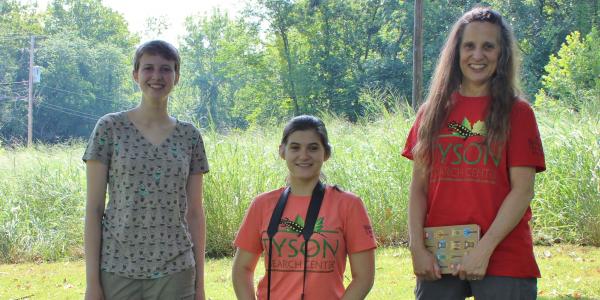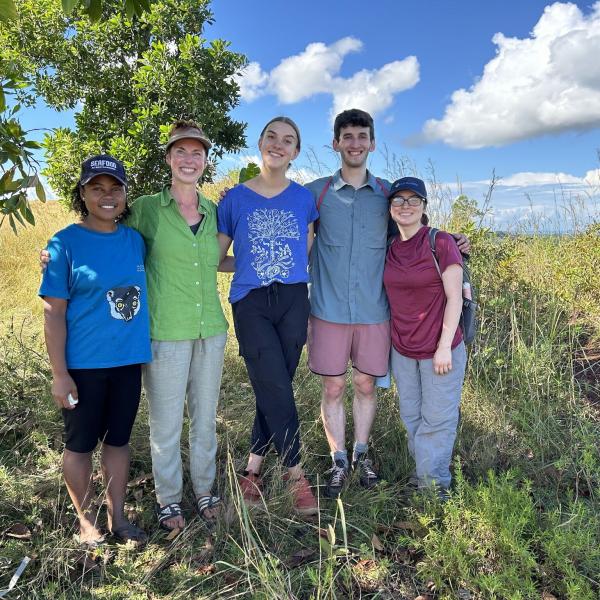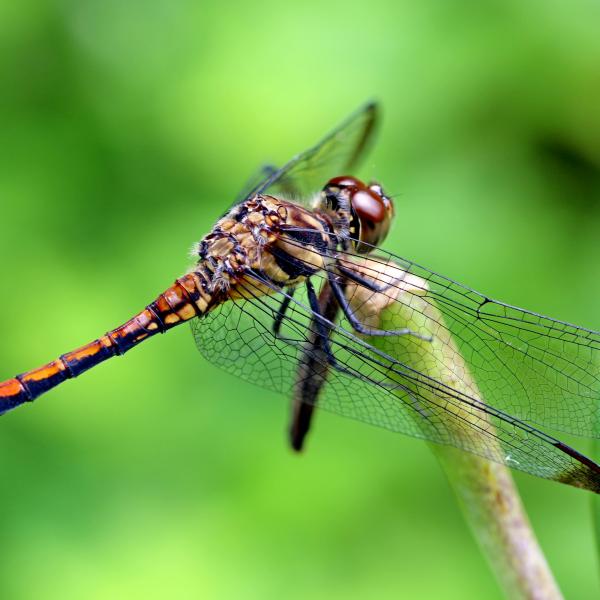As Tyson Humanities Fellows, Kit Lord and Hayley Huntley spent three months at the university's environmental field station, embedding with the Tyson community to explore the human side of science. After conducting hundreds of hours of interviews, the fellows, led by environmental humanities lecturer Suzanne Loui, profiled the people who make Tyson a thriving research ecosystem. Here, Lord details their collaborative interview project, Humans of Tyson.
What happens when you interview 50 people at an environmental field station?
I didn't set out to answer this over my 11-week internship at Washington University's Tyson Research Center, but I stumbled into the answer regardless.
My team's project was to create a profile of the community conducting the scientific work at Tyson by creating personal profiles of each of the researchers – faculty scientists, staff, technicians, graduate students, undergraduates, and high school fellows. We wanted to see what the experience of scientific work is and how the experience speaks to the people involved. What we found was a focus on overcoming difficulty, the role of mentorship in science, and the varied ways people arrived at Tyson. But underlying these topics was a passion for the work being done.
We were inspired by the Humans of St. Louis project, so with the guidance of co-founder Lindy Drew, we based our process on the pattern of pairing a documentary-style photo with an individual profile. To do this, we photographed and interviewed 50 people, asking them about their research as well as their personal interests and experiences working in science. What is it like being a mentor? What is your team dynamic? What keeps you motivated when you're counting hundreds of seeds at 3:00 in the afternoon?
The broader goal was to encapsulate the human experience of science. The objective aspects of science — the tidy columns of inputs and outputs, the graphs of trends, and the regimented methodologies that we so often associate with the field — are conveyed through research papers, popular science articles, and "what do you do for work" conversations. But the human aspect? That is sometimes erroneously considered irrelevant to communications about the field. Science is a human endeavor, and this human side is deeply relevant to people in all careers. So my team set out to interview those humans.
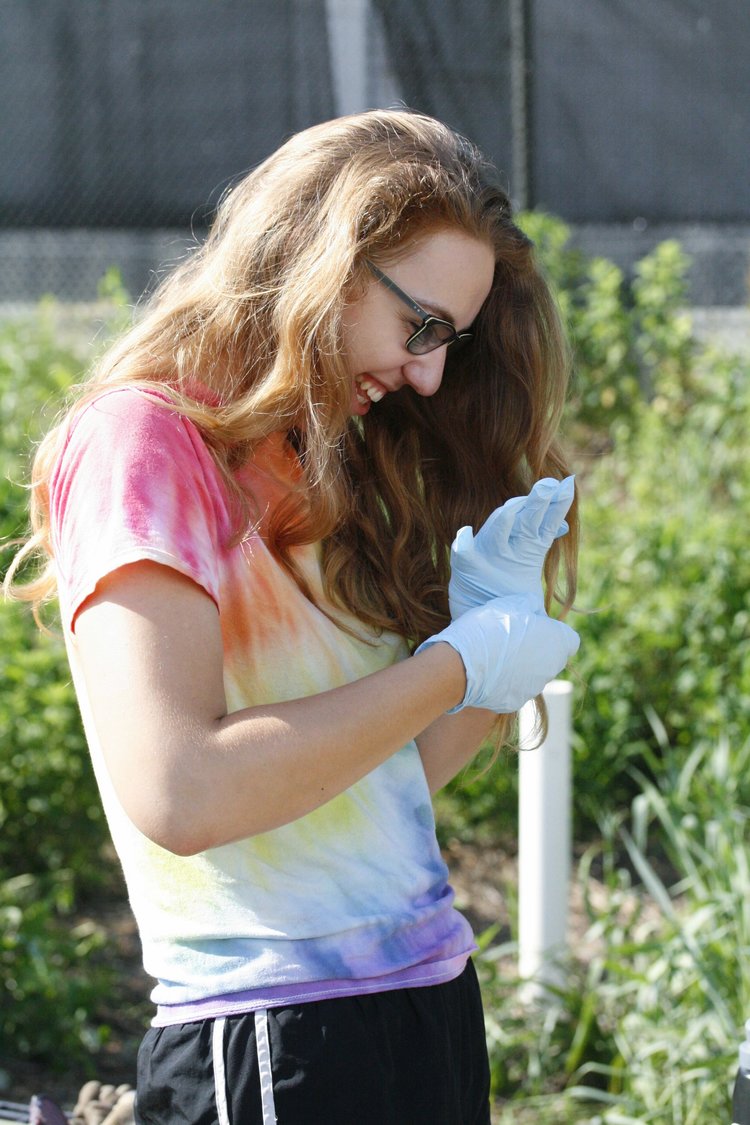
In our conversations, we found some repeated themes, like dealing with what can sometimes be demanding work:
“It does get a little bit tedious on some of the days when you’ve got a lot of new stems [to count], but what keeps me going is that when you get a little down, we call out things in funny voices and make each other laugh or make weird jokes about the trees or the six letter codes. It keeps the spirits up and makes the days not feel as long and drawn out.” – Kristen Riedinger, Undergraduate Fellow
“It’s hard to stay motivated because you get wrapped up in the grunt work and you think, ‘I’m filling holes,’ and ‘I’m just moving dirt around all day and weeding. What is the eventual end?’ It’s really great to have our weekly lab meetings in which we talk about the broader picture and how the work will translate to the scientific community. When they pull you back out and back into the intellectual realm and say, ‘Okay, this is what we’re doing again, just to remind you,’ it gets you re-motivated every week. I think it’s super important to have that.” – Rebecca Kiesel, Undergraduate Fellow
“The time all 300 of our plants died over the weekend…We had to scramble to plant new ones last week.” – Austin Chen, Undergraduate Fellow
Others spoke about their relationship with nature:
“I remember as a kid walking by trees and I was the only kid that would ever notice how beautiful they were and all the singular details and every single leaf. So when I got offered this position, I was like, this is wonderful. I'm going to be around other people that enjoy seeing nature the way that I see it and share the same ideas.” – Vlada Gladun, High School Fellow
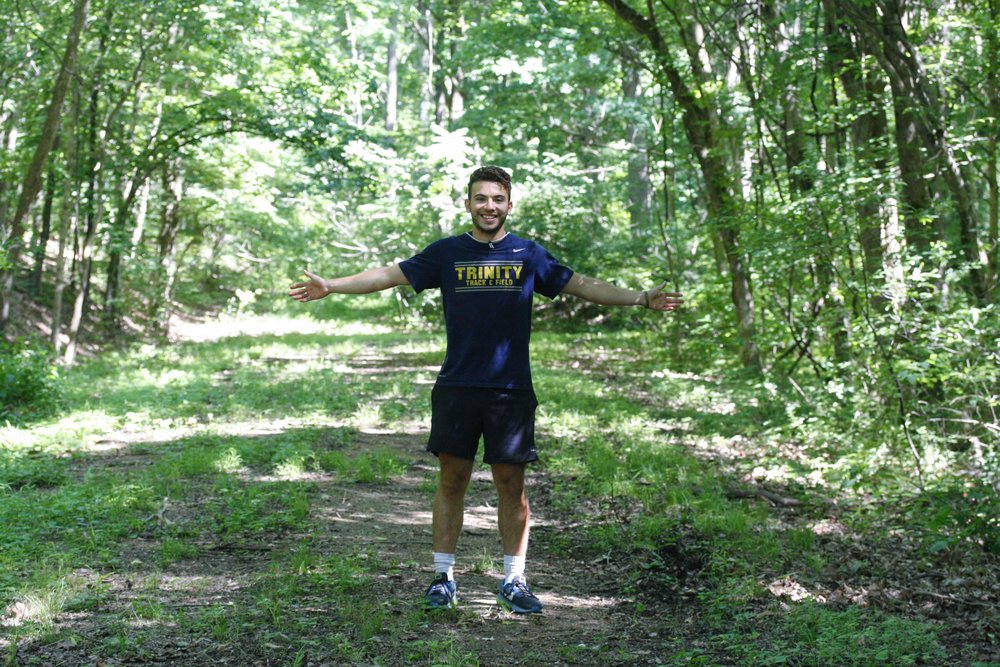
“I was in Central Park almost every day, and I know it really well. It's urban nature, but it was enough for me to get into. So even though growing up in a city I saw mostly sidewalk, I still managed to get a pretty strong love for trees. I think learning about the world and being able to share what you learn, and hopefully make people think the whole thing is as amazing as you do, is a big part of conservation. My friends walk past a tree and they're like, ‘Oh that's a tree.’ And I'm like, ‘Oh, it's a tree!’” – Ivan Ginsberg, Undergraduate Fellow
Team leaders talked about the experience of being able to mentor and watch high school students and undergraduates explore field work:
“Just today I mentioned to the women on the team, ‘Hey, step up and immerse yourself in the work and ask questions. Challenge yourself!’ Because I feel as a woman in society, we’re taught to stand back and men are taught to jump in and ask questions. I told them, ‘This is your opportunity over the summer to really learn.’ I didn’t have female role models when I started out as an undergrad, and it would have been nice to have one to guide me. I’d like to do that for other people.” – Rachel Becknell, Graduate Researcher
“Any time we're handling a live vertebrate, we always have to keep the safety of the animal as the number one priority. During training, I have to be careful and act quickly to respond to any issues, and still be patient with the students because they're learning too. But it's one of the things I really love doing. One of the coolest things for me is seeing that reaction of the students holding their first birds, ever! It's really inspiring.” – Solny Adalsteinsson, Staff Scientist
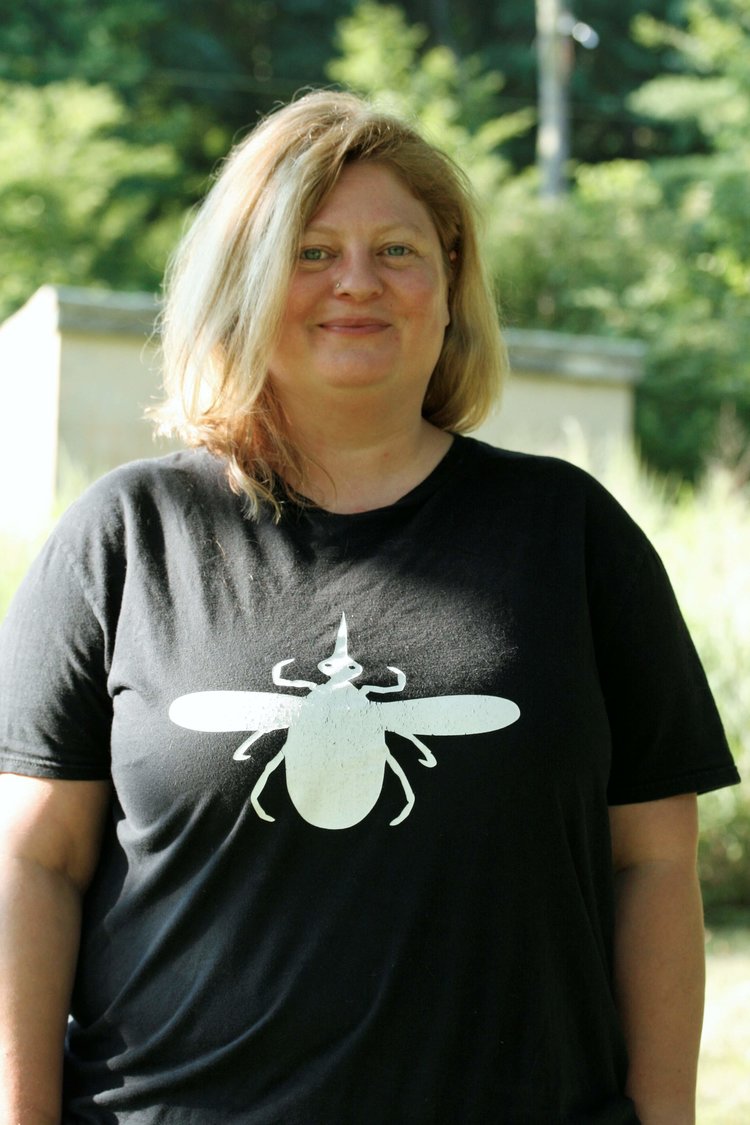
“Even though they're learning and not really sure how the whole process works, I always try to get them to do something with the possibility that if it works out great, something bigger can come from it. Watching their face light up when they realize they've got a project and worked out the methods and they're like, ‘Alright!’ I love that. I think that's really fun.” – Katie Westby, Postdoctoral Researcher
“The best part of working with undergrads is the mentoring aspect. I like being able to teach a lot of what I've done, even though I'm not that far ahead of anybody. And everybody has their specialized knowledge, especially in college when you're learning a lot of different things, so everybody can contribute and be a mentor in some way as well.” – Ben Chase, Ecology Research Technician
One question we asked that got surprisingly varied answers was what brought people to Tyson. While a majority of the undergraduate fellows are environmental biology majors, other majors and minors varied from psychology to violin performance. As one student summed it up, "We have a chem major, we have a neuroscience major. We have someone who's done reptile ID, forestry, botany, ecology. Mel is looking into some scientific communication stuff – a whole different perspective. So it's not always just about trees." And that was just his team!
A central theme that sprang out again and again through the different interviews is that the researchers find their work deeply meaningful. What we heard, the underlying pulse of the conversations, wasn't just "this work is important" or "this work is cool." There's something in hearing a scientist carefully, almost lovingly describe their experimental setup and hypothesis, something in seeing someone laugh off a particularly difficult task because they believe in what they're doing, something in seeing how varied the career paths are leading into and out of Tyson, that can't be shown in a table or graph. There's an extra layer to the human side of science — it isn't just the silliness or the personal stories of growing up alongside nature; it is also the conviction that the work being done here is not only objectively important, it is deeply resonant with the core of the human experience.
So what happens when you interview 50 people at an environmental field station? You gain a whole new appreciation for the work that is being done and the people who are doing it.
Read Humanities Fellow Hayley Huntley's piece, “The nature of inspiration,” and learn more about the Humans of Tyson project.
